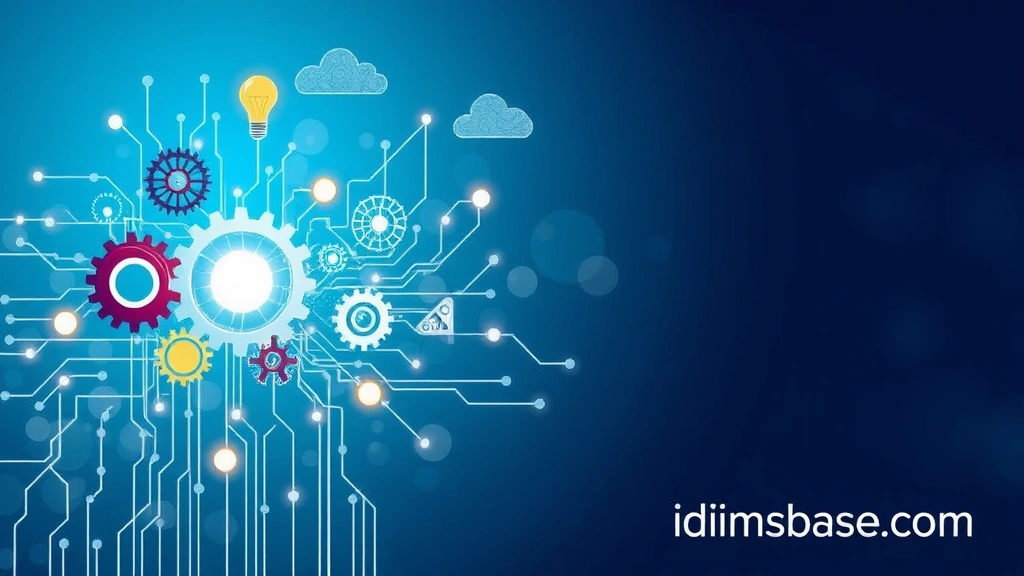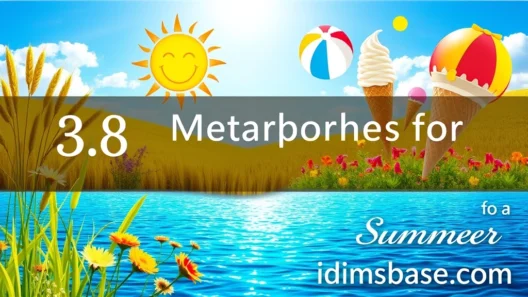Have you ever stopped to think about how much technology shapes our world? It's everywhere, from the tiny device in your pocket to the complex systems that power our cities. But how do we truly understand something so vast and ever-changing? Sometimes, the best way to grasp big ideas is through the magic of metaphors!
Metaphors help us connect new or abstract concepts to things we already know, making them easier to picture and understand. They're like little shortcuts for our brains! So, let's dive into 38 fascinating metaphors for technology that will spark your imagination and deepen your appreciation for this incredible force.
The Fabric of Our Lives: Technology as an Essential Element
- The Digital Spine: Imagine technology as the central support system, holding everything together and enabling all functions. Just like your spine!
- The Global Nervous System: Think of the internet and interconnected devices as the nerves, sending signals and information across the entire planet.
- The New Frontier: Remember the Wild West? Technology is our modern-day unexplored territory, full of discovery and opportunity.
- The Invisible Hand: Much like Adam Smith's economic concept, technology often guides and shapes our actions and choices without us even realizing it.
- The Modern-Day Alchemist: Technology transforms raw data and ideas into something incredibly valuable and powerful, much like alchemists tried to turn lead into gold.
- The World's Brain: With its vast storage and processing capabilities, technology acts like a giant, collective intelligence for humanity.
Technology as a Tool and a Force
- The Master Key: Technology unlocks doors to knowledge, communication, and possibilities that were once unimaginable.
- The Double-Edged Sword: It offers immense benefits, but also carries risks and potential for misuse. You have to wield it carefully!
- The Genie in the Lamp: It grants wishes, solves problems, and creates wonders, but its power must be used wisely.
- The Endless Canvas: For creators and innovators, technology provides an unlimited space to design, build, and express.
- The Great Equalizer: It can level the playing field, giving access and voice to those who might otherwise be marginalized.
- The Relentless River: Technology is constantly flowing, evolving, and carving new paths, always moving forward.
- The Scaffolding of Progress: It provides the structure and support for human advancement in every field.
Technology's Impact on Humanity
- The Collective Memory: From cloud storage to historical archives, technology remembers everything, creating a shared human record.
- The Window to the World: It opens up new perspectives, allowing us to see and connect with cultures and places far from our own.
- The Amplifier of Human Potential: Technology doesn't replace us; it magnifies our abilities, allowing us to achieve more.
- The Mirror of Society: It reflects our values, our desires, and sometimes, our flaws, showing us who we are.
- The Architect of Our Future: Technology isn't just a part of the future; it's actively building it, brick by digital brick.
- The Heartbeat of Innovation: Without technology, the pulse of new ideas and breakthroughs would slow considerably.
Everyday Analogies for Technology
- The Digital Butler: Your smart home devices and apps anticipate your needs and take care of tasks, just like a helpful butler.
- The Personal Librarian: With access to vast amounts of information, your devices are like having a super-smart librarian at your fingertips.
- The Silent Partner: In many tasks, technology works in the background, supporting and assisting without drawing attention to itself.
- The Express Lane: It speeds up processes, making things faster and more efficient, from banking to communication.
- The Universal Translator: Breaking down language barriers, technology helps us understand and be understood across cultures.
- The Ever-Present Companion: Your phone, your laptop – they're often right there with you, through thick and thin.

Technology Through a Critical Lens
- The Golden Cage: While offering convenience, technology can also trap us, making us dependent and potentially isolated.
- The Siren Song: Its allure can be irresistible, drawing us in with promises of connection and entertainment, sometimes to our detriment.
- The Pandora's Box: Once opened, its contents – both good and bad – are unleashed upon the world and cannot be put back.
- The Treadmill of Progress: It keeps us moving forward, but sometimes at a pace that feels exhausting, always chasing the next update.
- The Digital Drug: Its addictive qualities can lead to compulsive use and withdrawal symptoms when disconnected.
More Creative Takes on Technology
- The Quantum Leap: Technology often represents a huge, sudden jump forward in capability or understanding.
- The Invisible Web: Beyond the visible internet, there's a vast, interconnected network of data and systems constantly at work.
- The Genie in the Machine: It's the powerful, often unseen, force that makes complex machines and systems function.
- The Digital Chameleon: Technology constantly adapts and changes its form and function to suit new needs and environments.
- The Symphony Orchestra: Different technologies work together in harmony, each playing its part to create a larger, unified experience.
- The Unseen Current: Like an electrical current, technology powers much of our modern world, even when we don't directly see it.
- The Cosmic Weaver: It interweaves threads of information, communication, and innovation to create the complex tapestry of modern life.
- The Ever-Blooming Garden: Technology is always growing, sprouting new ideas, applications, and possibilities.
Key Takeaways

- Metaphors are powerful tools for understanding complex concepts like technology.
- They help us relate the abstract to the familiar, making ideas more accessible.
- Thinking metaphorically can deepen our appreciation and critical understanding of technology's role in our lives.
- Technology is a multifaceted force, acting as a tool, a system, a reflection, and a driver of change.
Frequently Asked Questions
What is a metaphor?
A metaphor is a figure of speech that directly compares two unlike things without using "like" or "as." It states that one thing is another to highlight a similarity or create a vivid image. For example, "the internet is a web."
Why are metaphors useful for describing technology?

Technology is often abstract, complex, and rapidly evolving. Metaphors help us grasp these concepts by relating them to more concrete, familiar experiences. They simplify understanding and make descriptions more engaging.
Can metaphors help us understand the risks of technology?
Absolutely! Metaphors like "the double-edged sword" or "Pandora's Box" clearly illustrate the potential downsides and dangers associated with technological advancements, encouraging critical thinking.
How can I use these metaphors in my own writing or conversations?
You can use these metaphors to explain technological concepts to others, make your writing more vivid and engaging, or simply to think more deeply about technology's impact on society. They're great conversation starters!
Are there other ways to describe technology besides metaphors?
Yes, you can also use similes (comparing using "like" or "as"), analogies (extended comparisons), or direct, literal descriptions. However, metaphors often offer a more concise and impactful way to convey meaning.
So, the next time you interact with a piece of technology, take a moment to consider what metaphor best describes it for you. It's a fun way to deepen your understanding and appreciation for the incredible, ever-evolving world around us! What's your favorite metaphor for technology? Share your thoughts and let's keep the conversation going!






